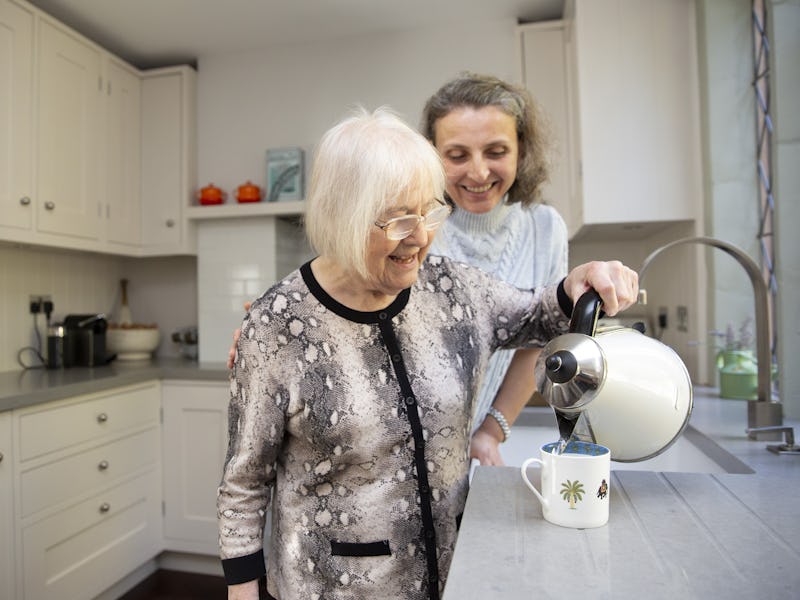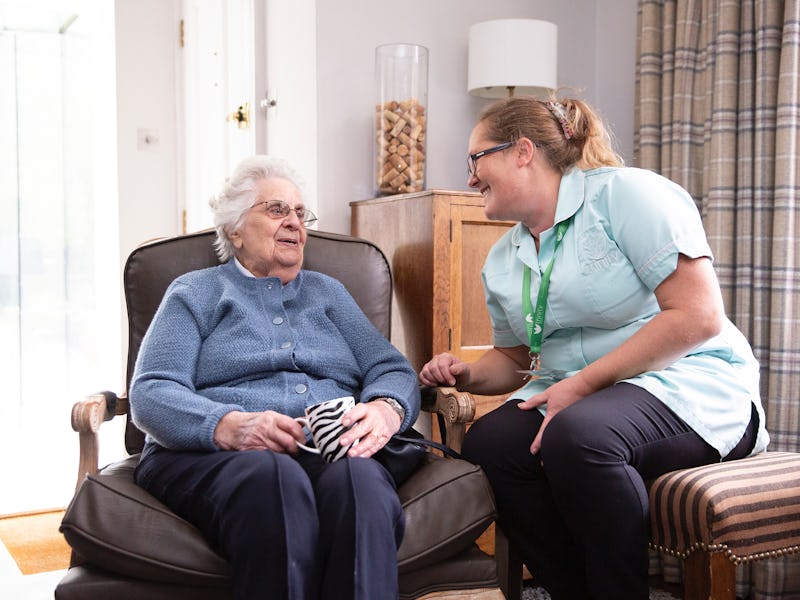| Previous Page: Signs, Symptoms and Stages | Next Page: Treatments for Dementia |
|---|
Dementia is not a normal part of ageing. So occasionally forgetting an item off your shopping list or missing an appointment doesn’t need to be an immediate cause for concern. However, if you or a loved one is feeling worried about changes in your cognitive or physical abilities, seeking advice from your doctor will help you understand the cause of these changes. Noticeable changes in your cognitive and physical abilities and behaviour may be caused by a treatable condition and seeking medical advice will help you access the right treatment.
If the cause of these changes is due to dementia, getting a formal diagnosis can be helpful to both yourself and your loved ones for many reasons. Although a formal diagnosis can be a worrying prospect, having a full understanding of your health will help you plan for the future to ensure that your decisions today will help you live an enriched life in the future.
With medical and scientific research making new advances every day, the range of available treatment is under ongoing development. Getting a diagnosis will help you access appropriate treatment wherever it’s available.
It is absolutely possible to live well with dementia, and with a dedicated support network of loved ones, medical professionals, charities and care providers, you’ll be able to access the treatment, advice and companionship you need to help you live the life you know and love.
Who can diagnose dementia?
Occasionally a GP or specialist nurse will make the diagnosis, depending on their expertise and training, but diagnoses are usually by specialist medical professionals such as:
- Psychiatrists – a mental health specialist
- Geriatricians – a doctor specialising in the physical health of older people
- Neurologists – a doctor specialising in diseases of the nervous system
What does a diagnosis involve?
Your local doctors’ surgery is a familiar location filled with familiar faces, which can be valuable comforts when having an initial discussion about dementia. Your GP will be able to offer their advice and guidance, they may make an initial diagnosis or they might refer you to a colleague or specialist to ensure that you receive a detailed assessment. There is no single test for dementia. The human brain is a phenomenally intricate organ, and a combination of assessments will help you understand your circumstances.
After an initial discussion you may participate in:
- A discussion with your GP will give you an opportunity to talk about how changes in your health have developed and how they’re affecting your daily life. It’s usually advisable for a loved one to also attend this discussion, to offer their own perspective and provide support.
- A physical examination and tests such as blood tests will help gather further information about your health and eliminate other possible causes for the symptoms
- Mental abilities will then usually be tested by memory tests and cognition tests. These tests aren’t designed to be a trick – their role is to help your medical team understand how your brain processes information. Simpler tests are usually carried out by a nurse or doctor, more specialist tests by a psychologist.
- Sometimes more information is needed before a conclusive diagnosis can be made. A scan of the brain will usually indicate the type and extent of the damage to the brain.
The more detail you can discover regarding your health, the more you’ll be able to understand and plan for the future.
| Previous Page: Signs, Symptoms and Stages | Next Page: Treatments for Dementia |
|---|

You may also be interested in











